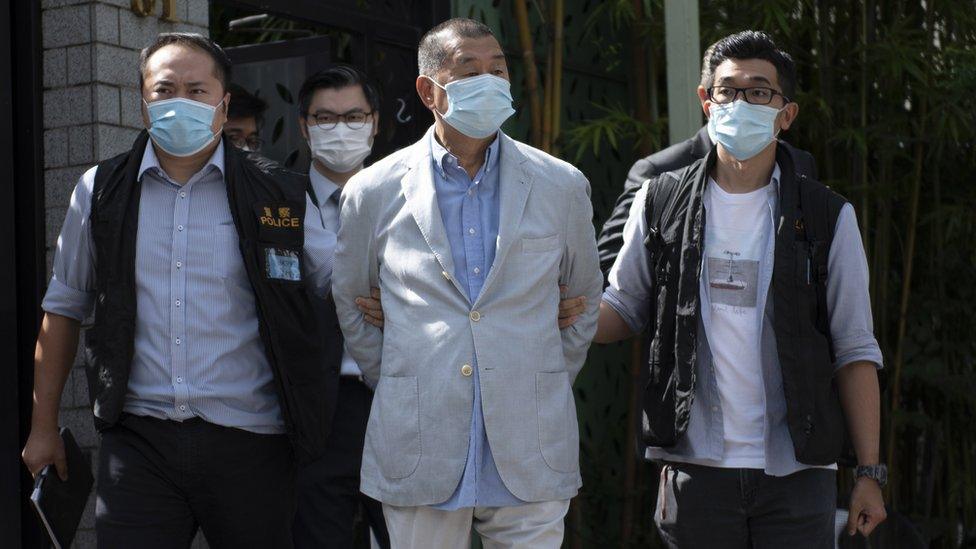Jimmy Lai: Hong Kong's rebel mogul and pro-democracy voice
- Published
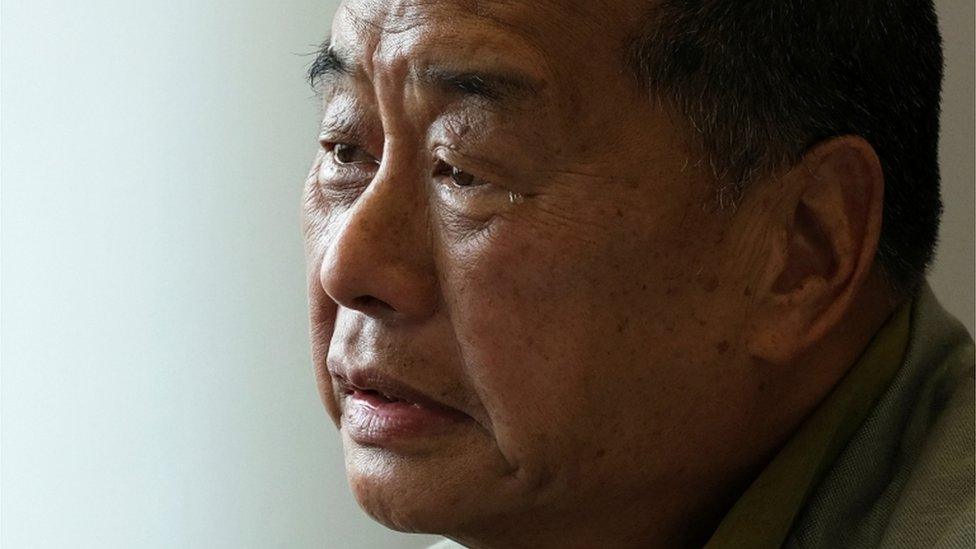
Jimmy Lai was sentenced in April 2021 to a year in prison
The billionaire media mogul Jimmy Lai, one of the most prominent supporters of Hong Kong's pro-democracy movement, is now on trial.
Already imprisoned on fraud charges and for his involvement in protests in the territory, the 76-year-old is now accused of colluding with foreign forces. He has denied all the charges.
The trial has drawn international attention, with British Foreign Secretary David Cameron calling for the release of Mr Lai, who is a UK citizen. Critics say his case shows how Hong Kong's legal system has become a weapon to silence political opposition.
Mr Lai, who has been in jail for almost three years, now faces a potential life sentence.
He has been a persistent thorn in China's side. Unlike other tycoons who rose to the top in Hong Kong, Mr Lai became one of the fiercest critics of the Chinese state and a leading figure advocating democracy in the former British territory.
As a result, he has faced a string of charges and was eventually sentenced to a prison term in 2021 on a charge of "unauthorised assembly". Last December, he was handed a five-year sentence for fraud.
He is still the most prominent person charged under Hong Kong's controversial national security law, which can carry a life sentence.
"I’m a born rebel," he told the BBC in an interview in 2020, hours before he was charged. "I have a very rebellious character."
Rags to riches
Jimmy Lai was born in Guangzhou, a city in southern China, to a wealthy family that lost everything when the communists took power in 1949.
He was 12 years old when he fled his village in mainland China, arriving in Hong Kong as a stowaway on a fishing boat.
While working odd jobs and knitting in a small clothing shop he taught himself English. He went from a menial role to eventually founding a multi-million dollar empire including the international clothing brand Giordano.
The chain was a huge success. But when China sent in tanks to crush pro-democracy protests in Beijing’s Tiananmen Square in 1989, Mr Lai began a new journey as a vocal democracy activist as well as an entrepreneur.
He started writing columns criticising the massacre that followed the demonstrations in Beijing and established a publishing house that went on to become one of Hong Kong's most influential.
The Hong Kong billionaire risking it all by speaking out
As China responded by threatening to shut his stores on the mainland, leading him to sell the company, Mr Lai launched a string of popular pro-democracy titles that included Next, a digital magazine, and the widely read Apple Daily newspaper.
In a local media landscape increasingly fearful of Beijing, Mr Lai had been a persistent critic of Chinese authorities both through his publications and writing.
This has seen him become a hero for many in Hong Kong, who view him as a man of courage who took great risks to defend the freedoms of Hong Kong.
But on the mainland he is viewed as a “traitor” who threatens Chinese national security.
In recent years, masked attackers firebombed Mr Lai’s house and company headquarters. He was also the target of an assassination plot.
But none of the threats stopped him from airing his views robustly. He was a prominent part of the city’s pro-democracy demonstrations and was arrested twice in 2021 on illegal assembly charges.
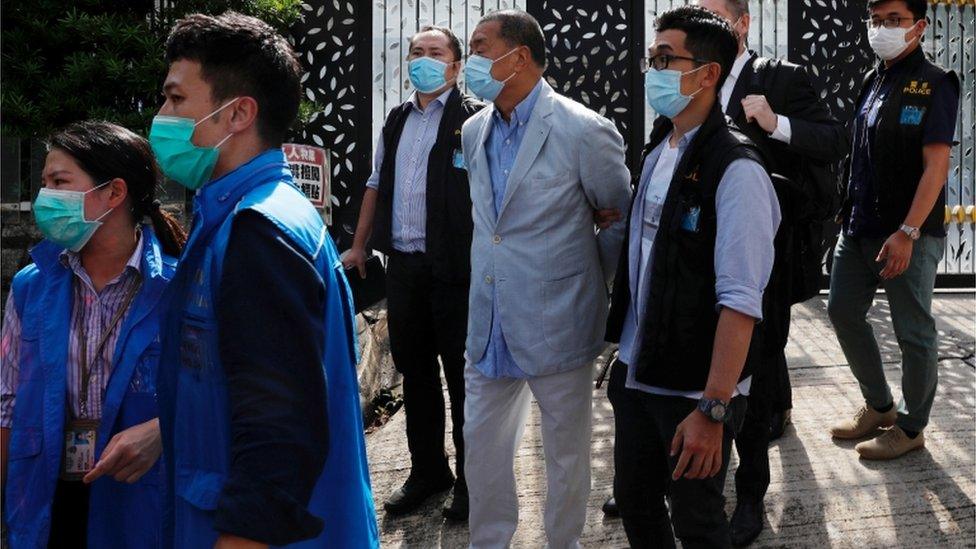
Jimmy Lai was detained by Hong Kong's newly set-up national security unit
When China passed Hong Kong's new national security law in June 2020, Mr Lai told the BBC it sounded the "death knell" for the territory.
The influential entrepreneur also warned that Hong Kong would become as corrupt as China. Without the rule of law, he said, its coveted status as a global financial hub would be "totally destroyed".
The media mogul is known for his frankness and acts of flamboyance.
In 2021, he urged US President Donald Trump to help the territory, saying he was "the only one who can save us" from China. His newspaper, Apple Daily, published a front-page letter that finished: "Mr President, please help us."
For Mr Lai, such acts were necessary to defend the city which had taken him in and fuelled his success.
He once told news agency AFP: "I came here with nothing, the freedom of this place has given me everything... Maybe it’s time I paid back for that freedom by fighting for it."
Related topics
- Published11 May 2023
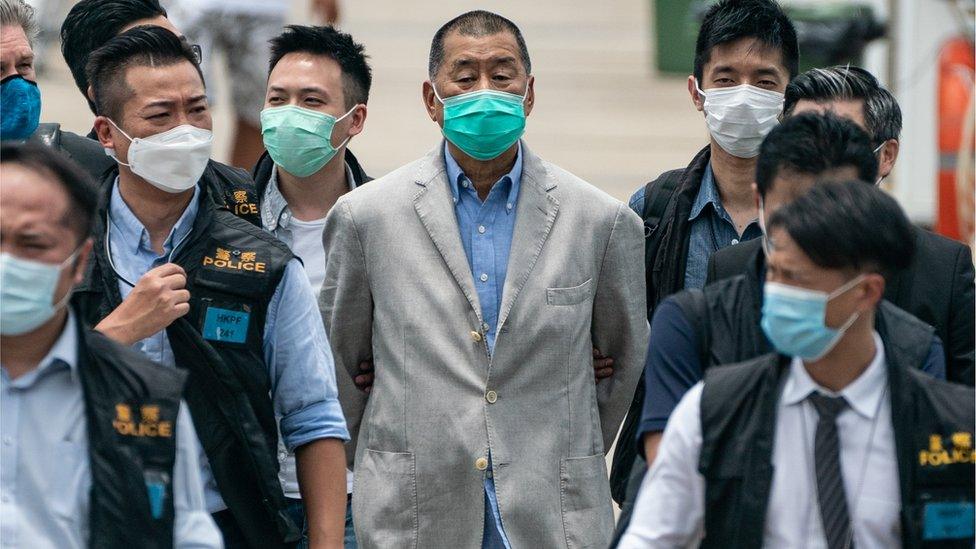
- Published10 December 2022
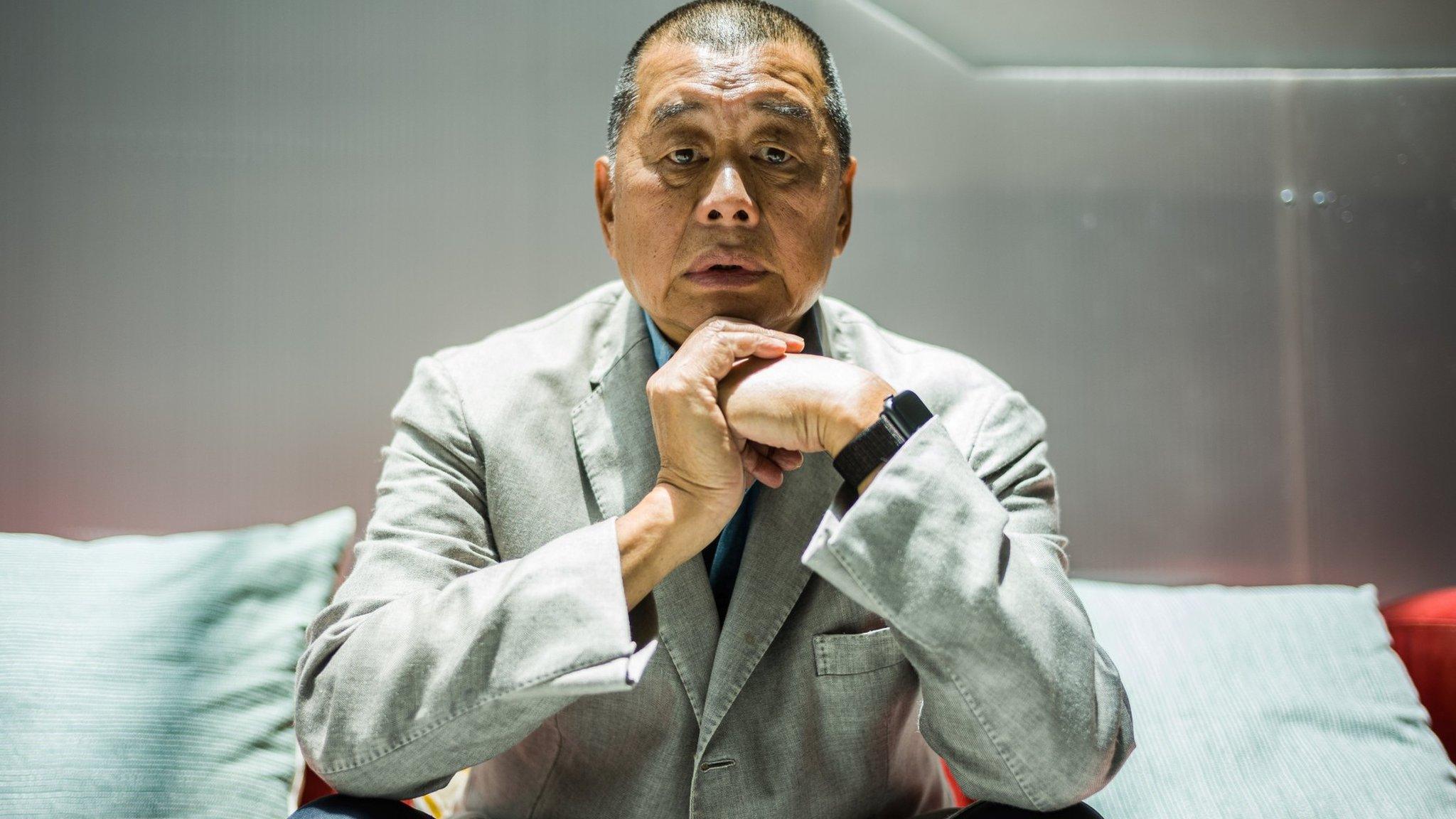
- Published10 August 2020
